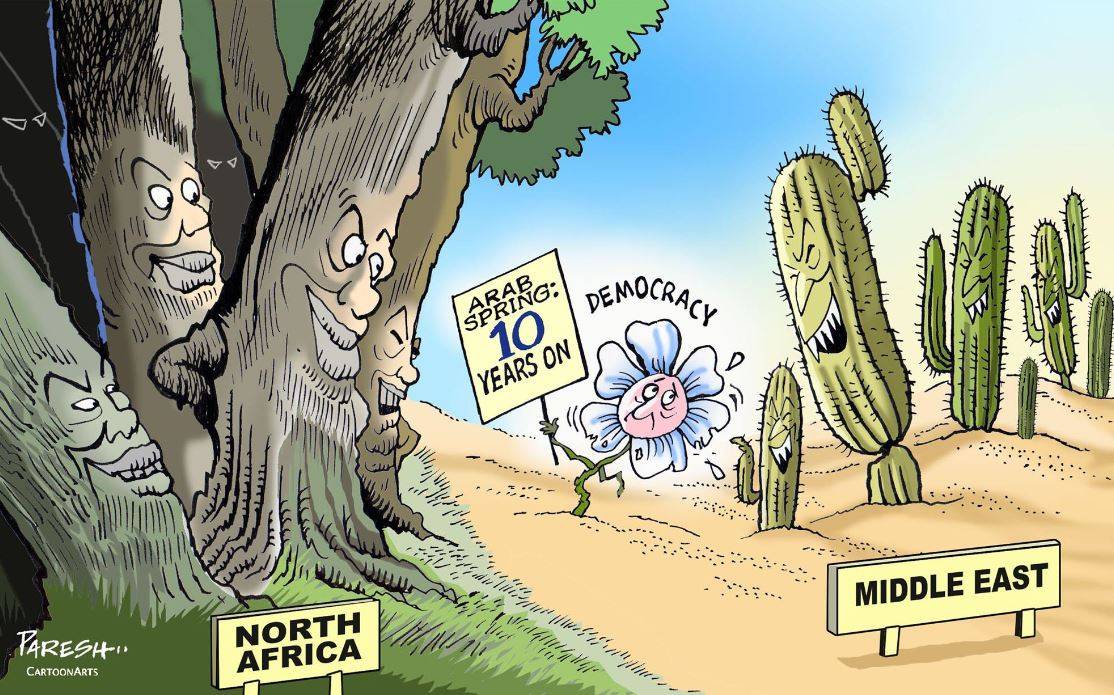The Arab Spring that erupted a decade ago was a quest for human dignity whose protagonists sought to overcome decades of repression, poverty and inequality. It occurred in two waves with the first cresting in Tunisia, Egypt, Libya, Syria and Yemen, followed by a second in 2019-20 in Algeria, Sudan and Lebanon.
Sadly, neither wave fully achieved the protesters’ aims. Instead of undergoing a genuine transition to freedom and social justice, almost all Arab Spring countries have reverted to various combinations of autocracy and various degrees of poverty and violence. Except for Tunisia, to a certain extent, most Arab societies are more polarized and fragmented today than they were before.
Democracy isn’t like instant coffee. It needs an enabling environment and a hospitable culture to flourish and grow. A history of colonialism, followed by decades of authoritarianism, meant that this environment was absent in the Arab world. The people who revolted and took to the streets loathed the regimes that had tyrannized them for so long. But they lacked a clear, unified vision of the change they sought.

















With your current subscription plan you can comment on stories. However, before writing your first comment, please create a display name in the Profile section of your subscriber account page.